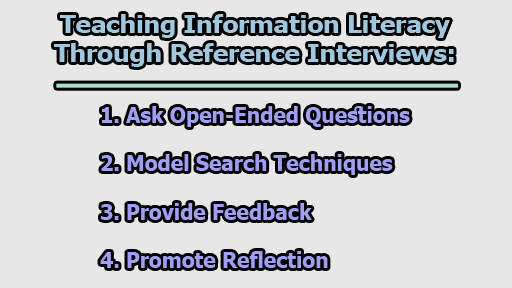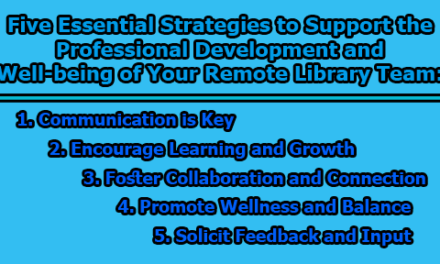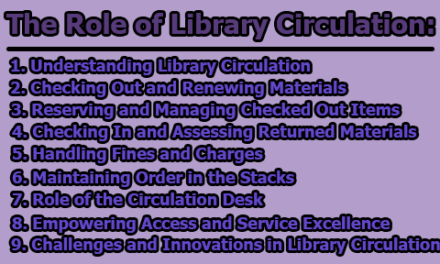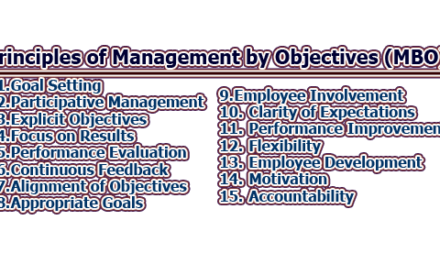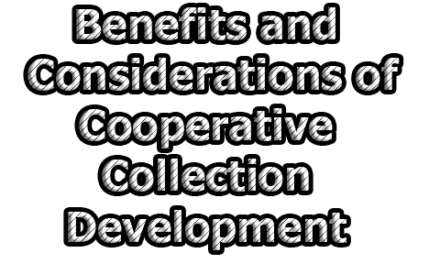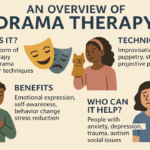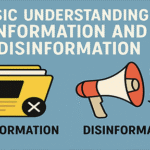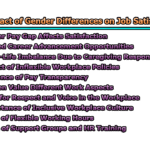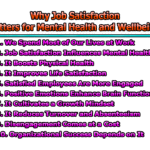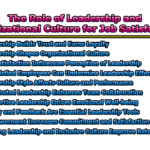Teaching Information Literacy through Reference Interviews:
Information literacy is a crucial skill in our increasingly digital world, and it plays a vital role in the academic, professional, and personal lives of individuals. Libraries and librarians are at the forefront of helping people acquire these essential skills. In this article, we will explore teaching information literacy through reference interviews by using open-ended questions, modeling search techniques, providing feedback, and promoting reflection.
1. Ask Open-Ended Questions: Open-ended questions are a fundamental tool in teaching information literacy during a reference interview. These questions encourage patrons to share their knowledge, interests, goals, and challenges related to their information needs. By asking open-ended questions, librarians can achieve several critical objectives:
- Assess Prior Knowledge: Open-ended questions allow librarians to gauge the patron’s existing knowledge and skills, ensuring that the instruction provided is neither too basic nor too advanced. This assessment helps tailor the guidance to the patron’s specific needs.
- Encourage Critical Thinking: Open-ended questions stimulate patrons to think critically and creatively about their research topics. This promotes a deeper understanding of the subject and helps patrons refine their research questions.
- Build Rapport: Engaging with open-ended questions creates a more open and trusting relationship between the librarian and the patron. It makes the patron more receptive to guidance and suggestions.
Examples of open-ended questions that librarians can use during reference interviews include:
- “What are you working on or interested in?”
- “What do you already know about this topic?”
- “What do you want to learn more about?”
- “How will you use the information you find?”
- “What challenges or difficulties have you faced so far?”
2. Model Search Techniques: Modeling search techniques is an effective way to demonstrate how to use the library’s resources and tools to find relevant and reliable information. This practical approach to teaching information literacy offers numerous benefits:
- Using Keywords and Filters: Demonstrating how to effectively use keywords and filters helps patrons understand how to narrow or expand search queries for more relevant results.
- Evaluating Sources: Librarians can illustrate how to assess the credibility, accuracy, currency, and relevance of sources, enabling patrons to make informed decisions about the materials they use in their research.
- Understanding Source Types: Patrons can learn to distinguish between different types of sources, such as books, articles, and websites, and comprehend the strengths and limitations of each.
Methods for modeling search techniques include:
- Demonstrating how to access the library’s catalog, databases, and guides.
- Sharing your screen or using a projector to display your search process and results.
- Encouraging patrons to follow along or try it; themselves while providing tips and feedback.
3. Provide Feedback: Feedback is an essential component of teaching information literacy during reference interviews. It offers valuable insights to patrons about their performance, progress, and ways to enhance their learning. Effective feedback serves several purposes:
- Reinforce Success: By praising patrons for asking good questions or finding useful sources, librarians boost their confidence and motivation.
- Identify Areas for Improvement: Constructive feedback points out errors or misconceptions, helping patrons address weaknesses and gaps in their understanding.
- Offer Resources and Strategies: Librarians can recommend additional sources, tools, or strategies to empower patrons to further their research effectively.
4. Promote Reflection: Encouraging reflection at the end of a reference interview helps patrons consolidate their knowledge and skills. It also aids in the transfer of information literacy to other contexts. Promoting reflection achieves the following objectives:
- Summarize Learning: Patrons can recap what they have learned or achieved during the reference interview, ensuring they have a clear understanding of the process.
- Evaluate Strengths and Weaknesses: Reflecting on the experience allows patrons to recognize their achievements and areas for improvement.
- Generalize and Adapt Skills: Patrons can learn to apply their information literacy skills to different topics, disciplines, and scenarios, fostering adaptability and generalization.
In conclusion, teaching information literacy through reference interviews is a dynamic and interactive process. By asking open-ended questions, modeling search techniques, providing feedback, and promoting reflection, librarians can empower patrons to become skilled and confident researchers. Information literacy is not only about finding information but also about understanding, evaluating, and applying it effectively. These methods can help individuals become lifelong learners who can navigate the vast sea of information in the digital age.

Assistant Teacher at Zinzira Pir Mohammad Pilot School and College

